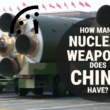The past is not the present
By Daniel H. Joyner, November 5, 2012
A non-nuclear weapon state's noncompliance with its Comprehensive Safeguards Agreement (CSA) does not per se constitute treaty breach. This is a fine legal point, but an important one (pp. 87-93). Historically, noncompliance with safeguards agreements — which can include minor technical accounting omissions or mistakes — has happened frequently and by many different countries.
Former IAEA Deputy Director General Pierre Goldschmidt notes in a 2009 article that, since 2003, the IAEA director general has reported to the Board of Governors on matters of noncompliance with safeguards obligations by Iran, Libya, South Korea, and Egypt. He also notes that the actions taken by the board in each case were inconsistent: It only referred Iran to the UNSC.
I agree that, in 2004, Iran was properly determined to be in noncompliance with its safeguards obligations. But that was eight years ago, and IAEA safeguards have now been applied to all of the facilities and activities cited by the board. As I noted in Round One, the IAEA director general has consistently confirmed that all safeguarded material in Iran is currently in peaceful use. Thus, in accordance with the agency's only lawful standard of investigation and assessment, Iran's 2004 safeguards noncompliance has been remedied, and Iran now is in full compliance with its obligations.
Ford argues that the Subsidiary Arrangements agreed to between Iran and the IAEA are legally binding. I disagree with this conclusion. He also writes that noncompliance with subsidiary arrangements by a non-nuclear weapon state per se constitutes noncompliance with the relevant CSA. There is simply no support for this assertion in the CSA. All of the CSA provisions that Ford cites only delineate the subjects that should be addressed in the subsidiary arrangements. They do not bear on the question of the relationship between the two documents.
The Additional Protocol is not legally binding on Iran, and its expanded mandate for the IAEA's investigations and assessments is not applicable to Iran's case. The UN Security Council's decisions have not changed this fact.
The CSA that is currently binding on Iran does not give the agency the authority to assess the completeness of Iran's declaration — that is, whether undeclared fissile materials exist — but only its correctness. If the CSA provided otherwise, there would have been no raison d'être for the Additional Protocol. Brazilian governor Machado Quintella, for example, highlighted this distinction during her remarks at the 860th Board of Governors meeting in 1995. It is a critical point misunderstood by both Ford and Persbo, who stress only the scope of safeguards in Articles 1 and 2 of the CSA. Viewing the agreement holistically, however, it is clear that the CSA sets up a system and a mandate for applying safeguards, which entails only (1) the state's declaration of specified materials on its territory and (2) the IAEA's verification that the declared materials are exclusively in peaceful use.
With regard to the argument, implied by both Ford and Persbo, that the UNSC has somehow deputized the IAEA through its decisions, and thereby given it some measure of extra authority to apply investigative or assessment standards in Iran's case, this is also fundamentally incorrect. While it can make decisions legally binding on Iran, as a UN member state, the UNSC does not have the power to give the IAEA additional authority to act outside of what it possesses pursuant to the agency's statute and its safeguards agreements with states. There is no basis in international law for this argument that one international organization can enlarge the authority of another international organization by fiat.
Topics: Nuclear Energy, Nuclear Weapons
Share: [addthis tool="addthis_inline_share_toolbox"]














